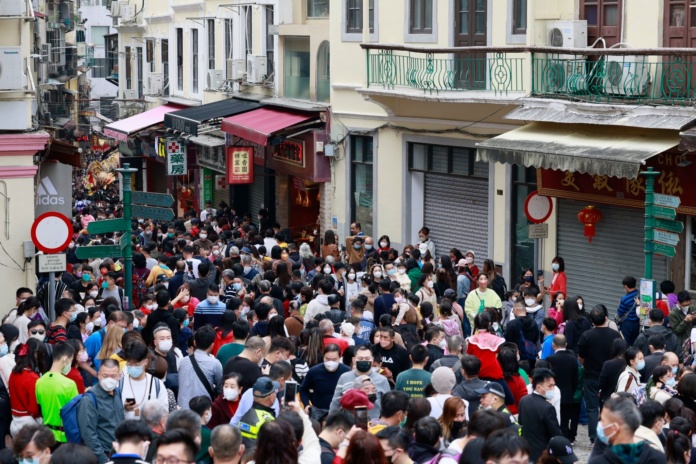
Macau Business | February 2023
By José I. Duarte | Economist, Macau Business Senior Analyst
As the Rabbit steps in, it is at last possible to be a (guardedly) optimist without looking un-ordinarily out of touch. Talk about recovery, guesses, or projections about the region’s evolution were hitherto set in the realm of fantasy or wishful thinking. We are now indeed facing a new era.
The two elements that presented the most severe obstacles to any sustained recovery path have been removed from the table (pun unintended). First, virtually without transition, the COVID-related policies collapsed. The associated health, social and economic toll will be analysed and assessed in due time, but there is a better place and time to do it. What matters most now is that we can start peering into the future and expect some form of normalcy ahead. Secondly, the gambling concessions were awarded, and the respective contracts were signed. The observation horizon gained depth, and the operations can proceed on firmer ground.
Uncertainties specific to the circumstances, not just the usual uncertainties inherent to human endeavors, are waiting ahead. They fall into three main categories. The first one concerns the reestablishment of visitor flows: how far and how fast will they grow their numbers? Another involves the characteristics of those visitors: what will be their composition and profiles? Finally, the concessionaires must adapt to the new operational and supervision conditions, namely, the restrictions and obligations incorporated in the current legal and contractual framework.
For all the talk and desire for diversification of visitors’ sources, the local market has become increasingly dependent on a single one, mainland China (if not a single region, the neighboring province). Bringing in people from other areas beyond Greater China has always been challenging. It is doubtful that the hangover from the last three years will make it any easier.
Even the fast reestablishment of flows from the mainland is less than assured. The economic impacts are not vanishing suddenly; the income stresses will not disappear overnight. Time will tell what the dominant profiles of visitors (origin, numbers, spending patterns, length of stay) will be when the immediate post-covid and Chinese New Year factors fade.
Even if the demand is there, it is doubtful the supply side can respond quickly. To mention the most obvious issues, staff skills and routines, logistics networks, and customer relations took years to develop and fine-tune. All were severely injured or dismembered in the last three years.
Comparatively, we are starting from a very low baseline. It will be possible to achieve fast growth rates at times and still hover very far away from the pre-covid numbers and income. That is neither inherently bad nor inevitably worse than before. There are different scenarios under which a viable and prosperous evolution is possible, even if, as it is likely, we will not rebound to past figures. How smooth such a transition can be, bearing in mind the existing premises, equipment, and activities (not to mention the new obligations of the concessionaires), is a matter to be seen.
All those aspects suggest time will be needed to fix a new ‘regular-working’ norm. Time for visitors’ contours and flows to stabilize, time for the operators to adjust to new and changing circumstances, and time for regulators to calibrate their ‘hand’ in the sector. Each one brings in specific concerns.
Yet, yes, it is possible to be (guardedly) optimistic. We can now look ahead with increased confidence. It is a new dawn (hats off to Nina Simone and others); we are regaining (some) mastery over our future. Indeed, significant uncertainties have not disappeared, and the shape of things to come (ditto, Wells et al.) will take time to set, but, at last, we started paving the way.
























